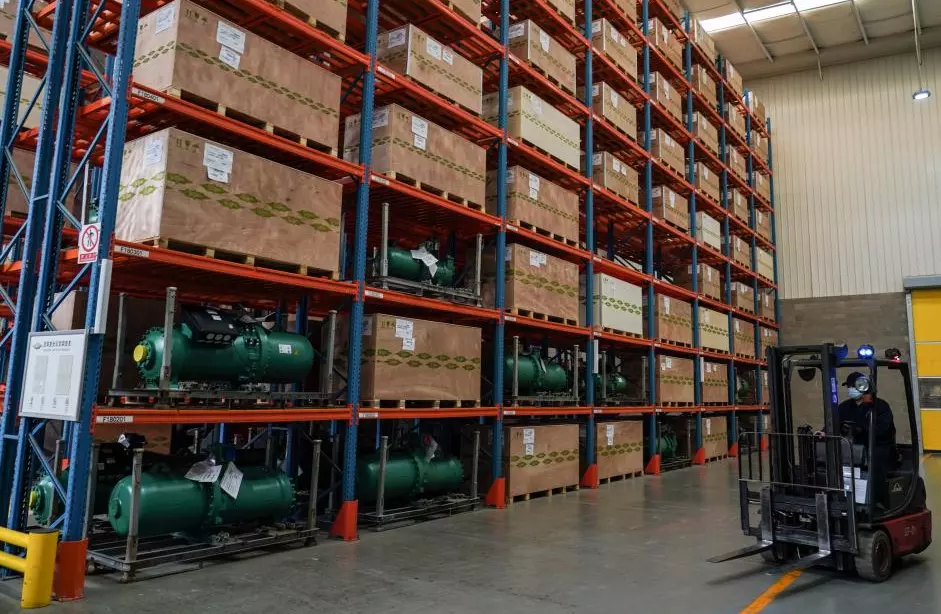BEIJING, March 10 (Xinhua) — Despite the impact of the pandemic, Bitzer, a German compressor technology company, decided to invest another 300 million yuan (about 43 million U.S. dollars) in its Beijing factory this year.
Part of the investment will be spent on a 4,800-square-meter building for the research and development (R&D) department, and the foundation-laying ceremony is scheduled in April.
“We have brought in some equipment, so we desperately need the building as soon as possible,” said Karl Heinz Meister, vice president of the Bitzer Asia Pacific Area.
It is the fifth time the company invested in its Beijing subsidiary over the past three years, with a total of 84 million yuan poured for the previous four times.
Meister said the Chinese government has emphasized high-quality development and environmental protection, so the company needs to design and put forward new products in the Chinese market.
The country’s “no food waste” campaign has also benefitted the refrigeration business, he added.
China will intensify efforts to attract and utilize foreign investment, according to a government work report unveiled on March 5 at the first session of the 14th National People’s Congress, the national legislature.
The country will expand market access, continue to open up the modern services sector, ensure national treatment for foreign-funded companies, improve services for foreign-funded companies, and facilitate the launch of landmark foreign-funded projects, said the report.
Bitzer started investing in Beijing in 1994, with a joint venture established in Tongzhou District. In 2006, the company founded its wholly-owned subsidiary — Bitzer Refrigeration Technology (China) Co., Ltd. — in the Beijing Economic-Technological Development Area.
The compressor is the heart of any refrigeration or air conditioning system. Bitzer’s products are applied in central air-conditioning systems in buildings, freezers in supermarkets, as well as air conditioners in automobiles and trains.
Apart from the market, the increasingly complete supply chain in China is another reason for them to keep investing in the Beijing factory.
“In the past, the company could only assemble compressors using imported parts, with almost no R&D staff, but now, with some 100 suppliers across China, the factory has become more and more independent in both production and the development of new products,” said Fang Yuyan, financial director of the factory.
To encourage foreign investors to continue to expand their investment, China has issued a deferring tax policy, which would exempt the withholding tax temporarily if foreign investors’ profits from Chinese domestic enterprises were directly invested in China, said Cong Lin, an official in charge of the international sector with the Beijing Economic-Technological Development Area Tax Service, State Taxation Administration.
To simplify the related procedures, an e-channel taxation service has been set up where companies can apply for different kinds of services online, without having to send staff to the taxation service hall.
“We have also conducted English training for our team for easier communication with international companies and foreign taxpayers,” Cong said.
Despite the epidemic, the sales revenue of Bitzer Beijing factory has been stable over the past three years, with a record of 1.6 billion yuan set in 2021.
Bill Feng has worked in the company for 16 years. He said China has been through multiple difficulties over the years, like the SARS and financial crisis, but the long-term uptrend of the country’s development remains unchanged all these years.
“The impact of COVID-19 is only short-term, and we are confident about the business prospects in China in the long run,” said Feng, now vice president of Bitzer Greater China.

